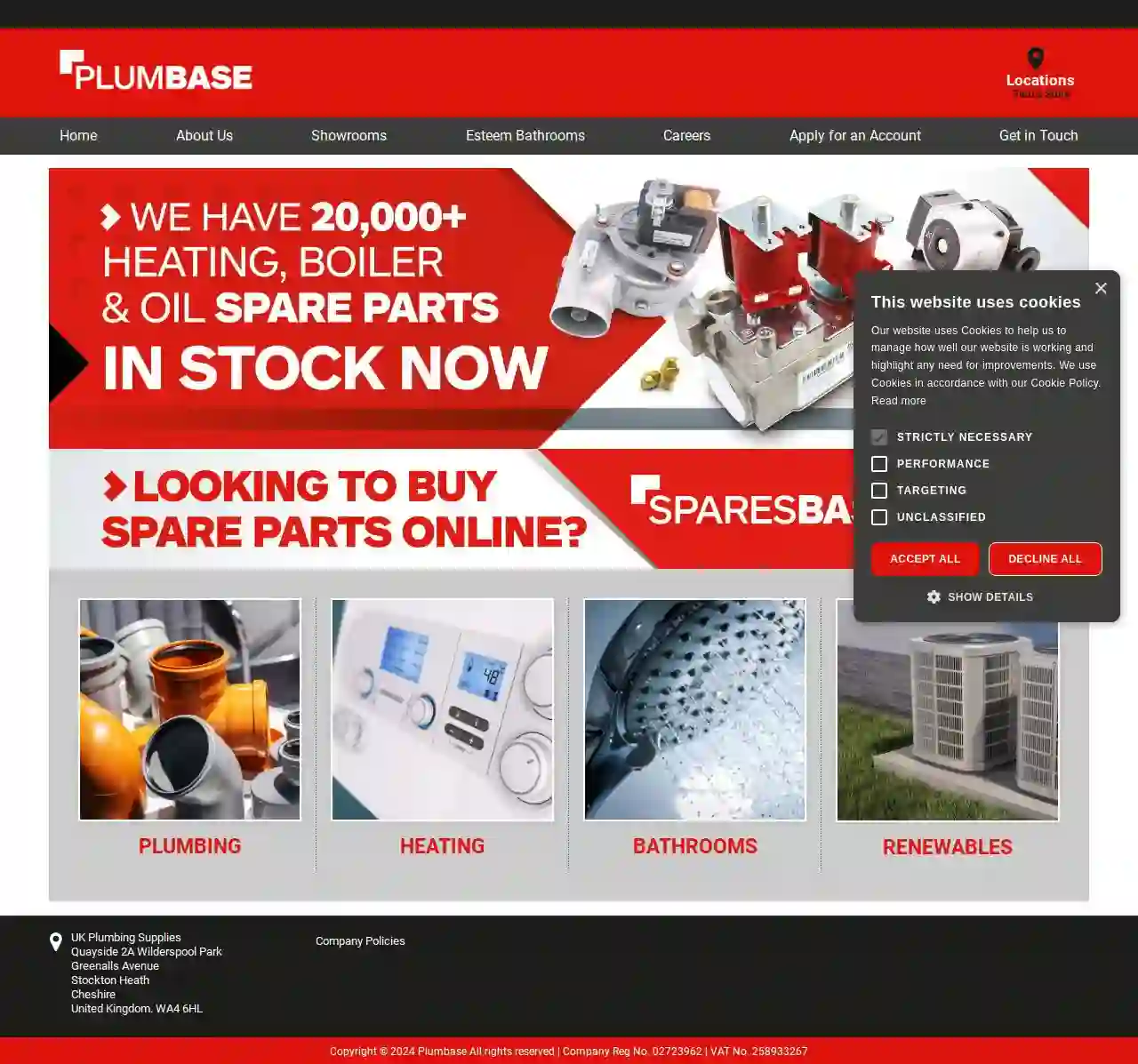Tankless Water Heater Hitchin
Find top Tankless Water Heater Repair in Hitchin
Receive multiple Tankless Water Heater Installation quotes for your project today! Compare profiles, reviews, accreditations, portfolio, etc... and choose the best offer.

Plumbase Hitchin
51 reviewsQuayside 2A Wilderspool Park, Greenalls Avenue, Stockton Heath, WA4 6HL, GBWe operate under a highly decentralised business model, allowing our experienced local teams to be the primary decision makers for our customers. Such a structure ensures that individual customer requirements are met with a first-class service. Our national infrastructure supports these efforts, enabling us to provide a consistent service throughout the UK. We are committed to maintaining extensive stock local to the customer's needs enabling us to offer the UK’s top brands ready for same-day delivery or collection. Our inventory also boasts a vast range of boiler spares, provided through our own central distribution, guaranteeing next-day availability for over 20,000 items. Whether you are a small or large customer, our aim is to provide you with the very best of service and ensure you come back time and time again. We are one of the UK's most respected plumbing businesses with locations spread across the UK. We've built a reputation as a specialist merchant of plumbing, heating and bathroom products for the trade and retail. Our locations can be found right across the United Kingdom.
- Services
- Why Us?
- Gallery
Get Quote
Over 1,966+ Plumbing Companies onboarded
Our plumbing contractors operate in Hitchin & surrounding areas!
Plumbyng.co.uk has curated and vetted Top Plumbers in Hitchin. Find the most trustworthy business today.
Tankless Water Heater FAQs
- Gas or electric: Gas units require proper venting.
- Proximity to fixtures: Ideally, install near frequently used hot water fixtures.
- Accessibility: For maintenance and repairs.
- Space constraints: Tankless units are smaller than tank heaters, but proper clearances are needed.
- Climate: Protect from freezing temperatures.
- Fuel type: Gas or electric, depending on your home's setup and energy preferences.
- Flow rate: Choose a unit with a flow rate that can handle your peak hot water demands.
- Size and capacity: Determine the appropriate size based on the number of bathrooms and your hot water usage.
- Energy efficiency: Look for units with high Energy Factor (EF) ratings to save on energy costs.
- Venting options: Gas tankless units need proper venting.
- Features: Consider additional features such as temperature controls, digital displays, and recirculation pumps.
- Flushing the unit: Removing mineral deposits and sediment buildup by flushing with a descaling solution.
- Cleaning air filters (if applicable): Ensuring adequate airflow for combustion.
- Checking venting: Inspecting the venting system for obstructions or leaks.
- Annual inspection: A professional inspection can identify and address minor issues before they become major problems.
How noisy are tankless water heaters?
Where is the best place to put a tankless water heater?
How to choose a tankless water heater?
How to maintain a tankless water heater?
How noisy are tankless water heaters?
Where is the best place to put a tankless water heater?
- Gas or electric: Gas units require proper venting.
- Proximity to fixtures: Ideally, install near frequently used hot water fixtures.
- Accessibility: For maintenance and repairs.
- Space constraints: Tankless units are smaller than tank heaters, but proper clearances are needed.
- Climate: Protect from freezing temperatures.
How to choose a tankless water heater?
- Fuel type: Gas or electric, depending on your home's setup and energy preferences.
- Flow rate: Choose a unit with a flow rate that can handle your peak hot water demands.
- Size and capacity: Determine the appropriate size based on the number of bathrooms and your hot water usage.
- Energy efficiency: Look for units with high Energy Factor (EF) ratings to save on energy costs.
- Venting options: Gas tankless units need proper venting.
- Features: Consider additional features such as temperature controls, digital displays, and recirculation pumps.
How to maintain a tankless water heater?
- Flushing the unit: Removing mineral deposits and sediment buildup by flushing with a descaling solution.
- Cleaning air filters (if applicable): Ensuring adequate airflow for combustion.
- Checking venting: Inspecting the venting system for obstructions or leaks.
- Annual inspection: A professional inspection can identify and address minor issues before they become major problems.